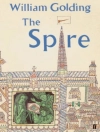In ‘Dubliners, ‘ James Joyce presents a meticulously crafted collection of fifteen interconnected short stories that illuminate the lives of Dublin’s inhabitants in the early 20th century. This seminal work employs a realist literary style, characterized by its rich details and psychological depth, offering poignant portrayals of the paralysis and disillusionment permeating Irish society. Each story captures the ordinary yet profound moments of everyday life, marking a significant departure from romanticized narratives and placing Joyce at the forefront of modernist literature. The vignettes range from childhood innocence to the bittersweet realizations of adulthood, ultimately converging into a shared experience of epiphany and often, melancholic resignation. James Joyce, an iconic figure in literature, drew inspiration from his own tumultuous experiences as a native Dubliner. Formative encounters with the political, cultural, and social upheavals of his hometown influenced his narrative voice and thematic concerns. Joyce’s defiance of traditional literary conventions and his commitment to authenticity resonate through ‘Dubliners, ‘ as he uncovers the complexities of human motives and societal constraints, informed by his deep-seated love for Dublin and its multifaceted populace. ‘Dubliners’ is an essential read for those interested in the intricacies of human emotions and the socio-political contexts that shape them. Joyce’s keen observations offer readers a timeless mirror reflecting the struggles of identity, aspiration, and the inevitable entrapment in one’s environment. This collection remains a pivotal exploration of not just Dublin’s vibrant life, but also the universal quest for meaning in the human experience.
Sobre el autor
James Joyce (1882-1941), one of the most influential writers of the 20th century, was an Irish novelist, short story writer, and poet, renowned for his complex narrative techniques and pioneering explorations in the modernist literature movement. Joyce’s ‘Dubliners’, a collection of fifteen short stories published in 1914, offers a depiction of the stagnation and paralysis of Dublin society. The characters in these stories reflect the mundane realities and moral crises of the Irish middle class at the turn of the century (Joyce, 1914). His lucid yet intricate prose style and his profound psychological insights into the lives of his characters set ‘Dubliners’ apart as a critical work in the evolution of the short story as a literary form. Joyce’s literary artistry further manifests in his seminal work ‘Ulysses’ (1922), a tome characterized by its stream of consciousness technique and a groundbreaking narrative structure that renders it a towering achievement in modernist literature. Joyce’s oeuvre reveals an unapologetic commitment to exploring the profundities of the human experience through language, resulting in a profound influence on the trajectory of English literature. His contributions extend beyond ‘Dubliners’, with other significant works including ‘A Portrait of the Artist as a Young Man’ (1916) and ‘Finnegans Wake’ (1939), which have cemented his reputation as a writer of extraordinary intellect and literary prowess.












